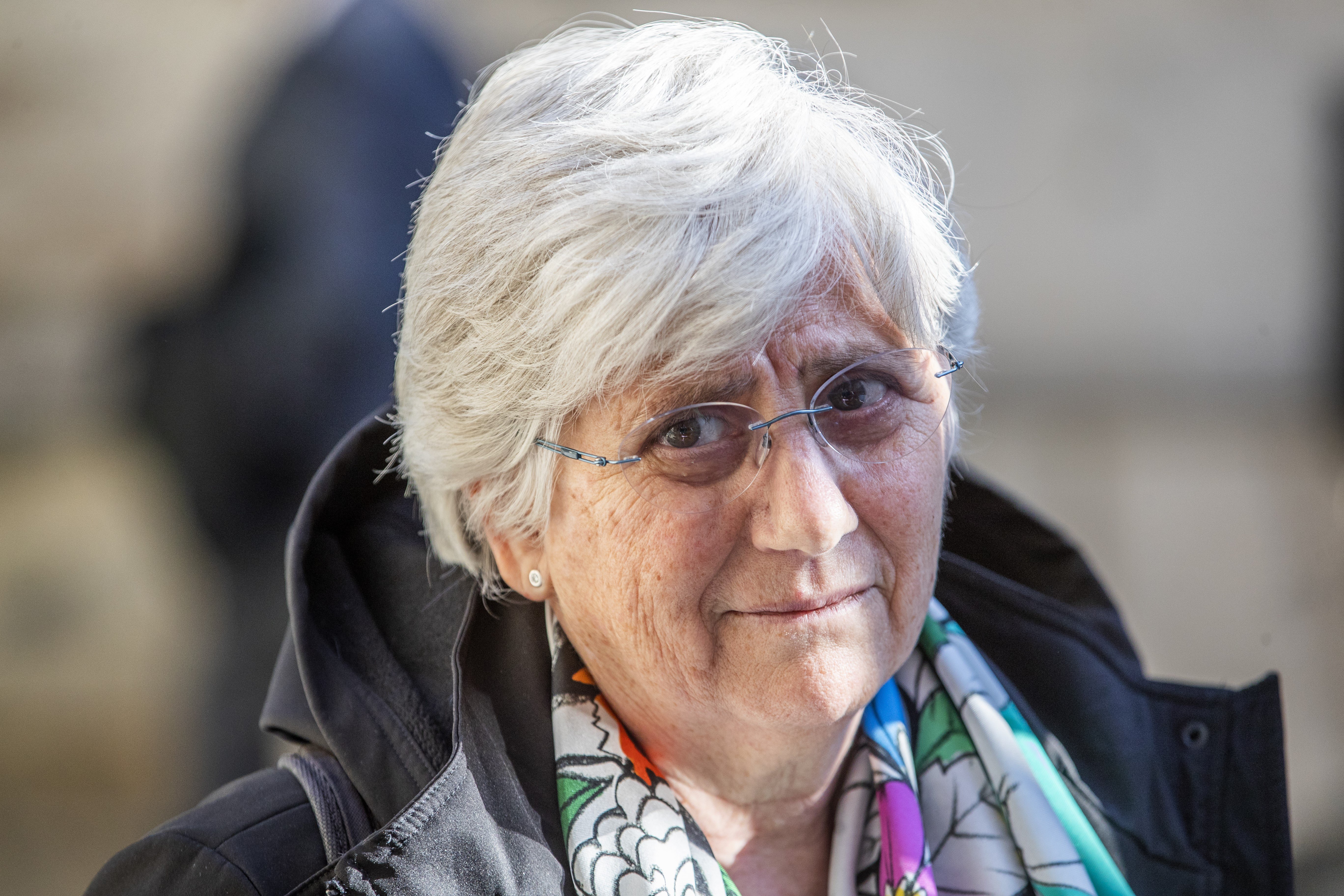The MEP Clara Ponsatí has never hidden her criticisms of the Catalan independence movement's response after the crucial 1st October 2017 referendum and how the movement has evolved since 2017. The publication of the exiled Catalan politician's book Clara Ponsatí. Molts i ningú ("Clara Ponsatí. Many and None"), in which she "stitches together memories and other stories", has provided an excuse to set out her diagnosis of the health of the pro-independence forces and criticize the government's political response to the judicial offensives against Catalan language immersion. In an electronic press conference, she denied having any intention to launch a political party, despite her reiterated criticisms of all three main political forces that represent Catalan independentism.
Ponsatí affirms that the vision of the independence movement expressed in her book tries to be optimistic, but admits that the movement is "stuck" and in a "bogged down" state, warning of what she describes as a "politics of giving up" which has weakened the pro-independence forces, and although it seems to have a majority right now, it does not have "the political tools to materialize another offensive."
The reason is that Spain's repression has had its effect and "undermined the moral solidity" of political leaders. "Another interpretation would be that we have been deceiving ourselves for a long time. I think that is not true, in general," she said.
A new expression
The MEP's conclusion is that what is required is a new political expression of independentism, without specifying whether this should take place through the reconfiguration of the existing parties or the emergence of other options, or with a new push from grassroots movements.
In any case, she asserts that rumours that she wants to push for a new party are media intoxication; she denies them "exhaustively." At the same time, she admits that she is critical of the pro-independence parties, "all three", she notes in reference to Junts, ERC and CUP. "I don't think they are useful tools right now," she says, adding that she has not lost hope that they could improve.
Despite making a speech at last Saturday's meeting of the Permanent Assembly of the Catalan exile organization, the Council for the Republic, Ponsatí has distanced herself from the controversy over whether Carles Puigdemont can combine his new official role as president of the Council for the Republic with his presidency of the political party Junts, but she recalls that if one considers national liberation organizations - referring to the Jewish Council, the PLO and the Irish independence movement - all have been organizations going beyond the political parties and usually the person presiding has also been president of a party. According to Ponsatí, "the problem is that the discourse of Junts in the Catalan government, and the task that the Council for the Republic has taken on by its own initiative, seem completely incompatible. They are dissonant."
Violence
Ponsatí also reflects in the book on the Spanish state's willingness to use violence "as much as necessary" to repress the Catalan independence movement. At the press conference she asserts her conviction that the state would be willing to kill and at the same time her strong view that this must not be used as a way to brake the movement. "People cannot use the excuse that the oppressor wants to use violence and that to protect the oppressed we must give up the fight. That is my argument," she said, adding that it would be tantamount to renouncing independence as long as the state has the violence."
She underlines that in no way is she proposing that Catalans renounce non-violence. "But I do say that we have to be willing to make sacrifices and that this is something that each person involved has to decide." In any case, she adds that there are people who are willing to sacrifice their lives for a cause and people who are not, but that when there is a violent state facing them there can be very high costs. “It’s paternalistic on the part of leaders to hide the fact that things can get costly,” she warns.
Ponsatí, who was minister of education in the Carles Puigdemont government and was among the ministers who chose to go into exile when the Spanish government began its repression, criticizes the government's response to the ruling imposing a 25% Spanish language quota in schools; she warns that the Catalan school system has been one of the assets of Catalonia and that it is deteriorating and becoming devalued, and that the work of the educational authorities is the opposite of what is required in the face of an offensive against immersion that she describes as "cultural and denationalizing", and which, as a consequence, must be defended "with conviction and firmness."

